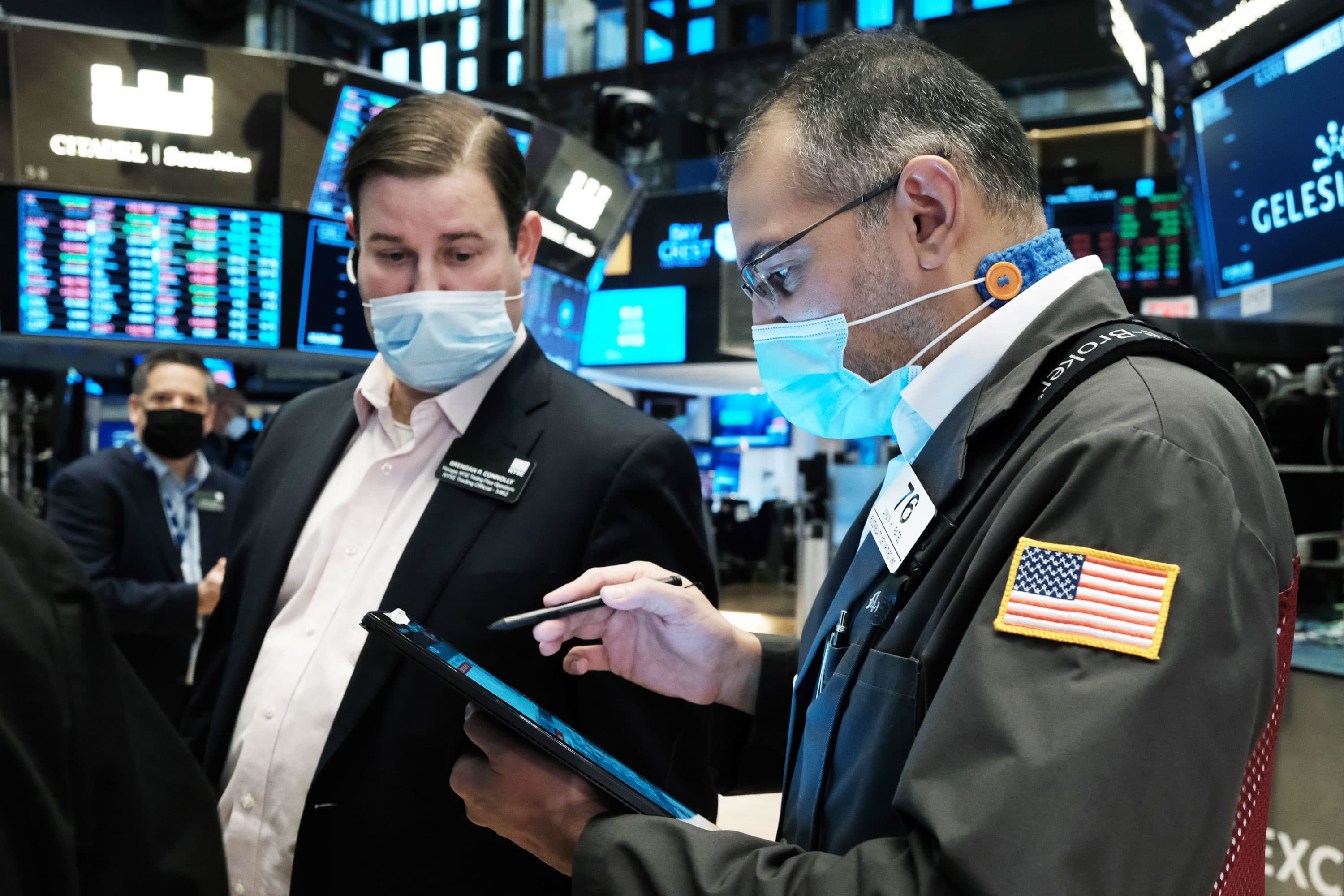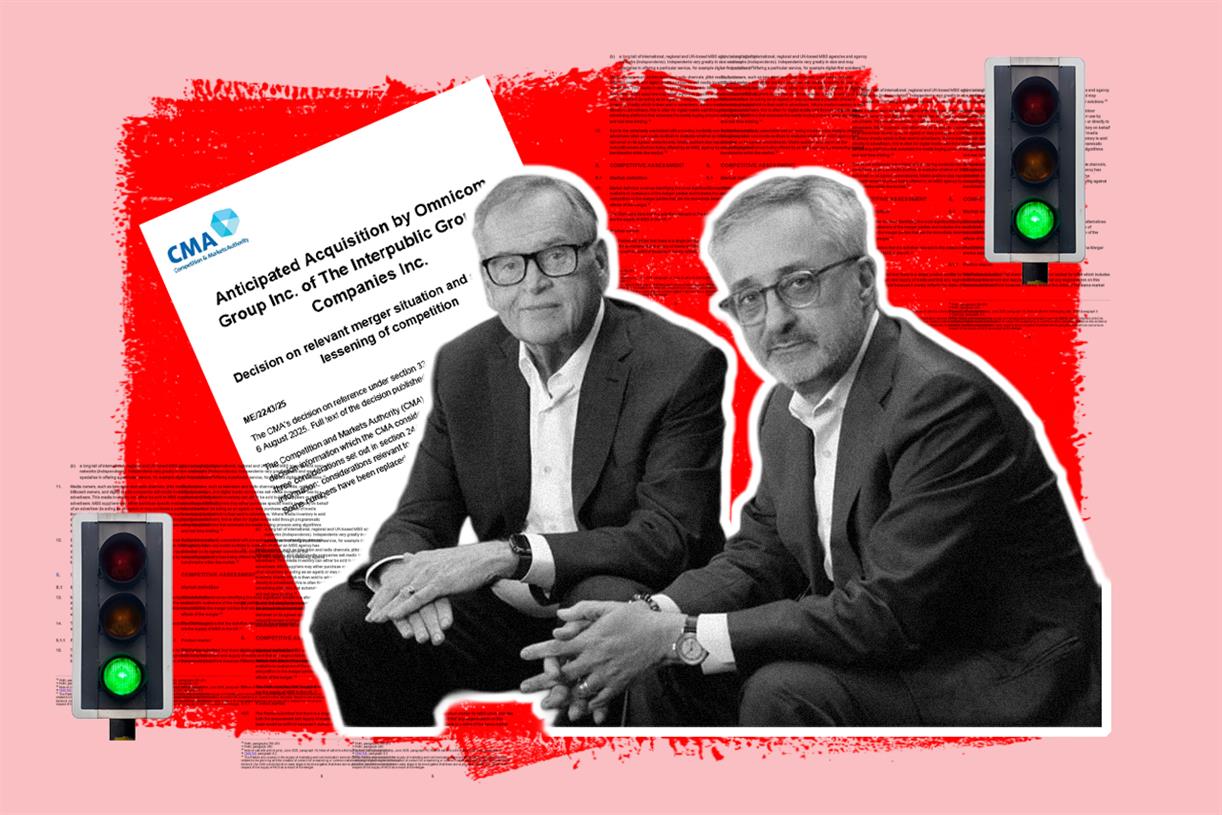S&P 500 falls as investors assess latest with Russia-Ukraine war, higher energy prices
The S&P 500 traded lower on Monday as investors juggled the ongoing war between Russia and Ukraine and evaluated oil prices.

Traders work on the floor of the New York Stock Exchange (NYSE) on January 18, 2022 in New York City.
Spencer Platt | Getty Images
The S&P 500 traded lower on Monday as investors juggled the ongoing war between Russia and Ukraine and evaluated oil prices.
The Dow Jones Industrial Average lost about 300 points, or 1%. The S&P 500 declined 0.85%, falling deeper into correction territory. The Nasdaq Composite was lost 0.6%, also in a technical correction.
Overnight on Sunday, U.S. oil prices hit their highest level since 2008 amid an ongoing war between Russia and Ukraine. West Texas Intermediate crude futures, the U.S. oil benchmark hit $130 per barrel at one point before pulling back. WTI Crude is now up 1.5% around $117 per barrel. The international benchmark, Brent crude, spiked to to $139.13 per barrel — its highest since July 2008 — before pulling back to around $121.
Energy stocks rose alongside the price of oil. Baker Hughes added 3.6%. Valero Energy and ConocoPhillips rose 2% each. Exxon Mobil rose 1%.
"The equity market is wrestling with the large commodity supply shock, including notably oil prices, and concerned that this could be morphing into a stagflationary shock instead of just an inflation shock," said Kathy Bostjancic, chief U.S. economist at Oxford Economics. "Equities will be keying off changes in oil prices and the prospects of an oil embargo from Russia."
Secretary of State Antony Blinken said Sunday that the U.S. and its allies are considering banning Russian oil and natural gas imports in response to the country's attack on Ukraine.
House Speaker Nancy Pelosi also said in a letter to Democratic colleagues that the chamber is "exploring strong legislation" to ban the import of Russian oil — a move which would "further isolate Russia from the global economy." Gas prices surged to their highest level since 2008, with the national average hitting $4.06 a gallon, according to AAA.
Planned evacuations Saturday from the cities of Mariupol and Volnovakha were canceled after Russia violated a cease-fire agreement and fighting continued in or around both cities. Mariupol City Council said Sunday that Russia had again violated a second attempt at a temporary cease-fire that would enable its civilians to leave.
Despite the move away from risk, government bond yields rose, indicating less demand for safe-haven assets. The benchmark 10-year Treasury note was most recently at 1.76%, up nearly 4 basis points on the session as inflation worries pushed yields up.
Still, bank stocks were among the biggest losers, on Monday with Citigroup down 3.9% and U.S. Bancorp down nearly 3% as economic pressure weighed on the financial sector.
Bed, Bath & Beyond soared more than 65% after GameStop Chairman Ryan Cohen revealed he had a nearly 10% stake in the retailer, through his investment company RC Ventures.
Stock picks and investing trends from CNBC Pro:
Positive data from the U.S. Labor Department wasn't enough for investors to shrug off concerns about the war between Russia and Ukraine. On Friday, the Bureau of Labor Statistics reported the economy added 678,000 jobs in February. The monthly jobs gain topped economists' expectations of 440,000 as gauged by Dow Jones. The unemployment rate slipped to 3.8%.
Last week, the Dow and S&P 500 slid about 1.3%. The Dow notched its fourth losing week and the S&P 500 closed in correction territory on Friday, down more than 10% from its record close. The Nasdaq Composite lost roughly 2.8% and is also in a technical correction.
Several economic data reports are scheduled to be released throughout the coming week, including the Consumer Price Index for February, due Thursday. The key indicator is expected to show inflation rose 7.8% from a year ago.
The February job openings and labor turnover survey, or JOLTS, is expected Wednesday.
Federal Reserve officials are in the quiet period ahead of next week's policy meeting. The Federal Open Market Committee gathers March 15-16, when it is expected to approve a quarter-point increase for its benchmark short-term borrowing rate.
A quieter week of earnings is on deck. Some big tech names like Oracle, CrowdStrike and DocuSign are scheduled to report. Rivian Automotive, Ulta Beauty and Bumble will also report.

 BigThink
BigThink 
































